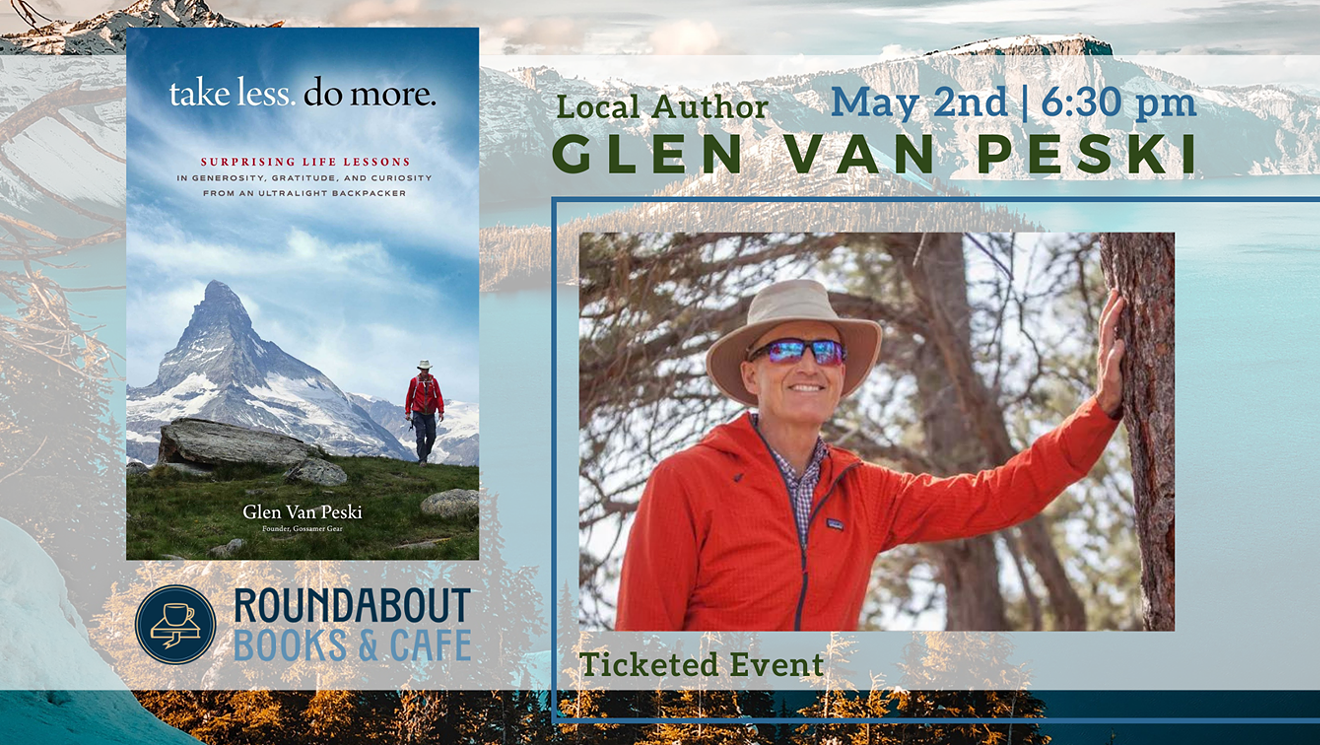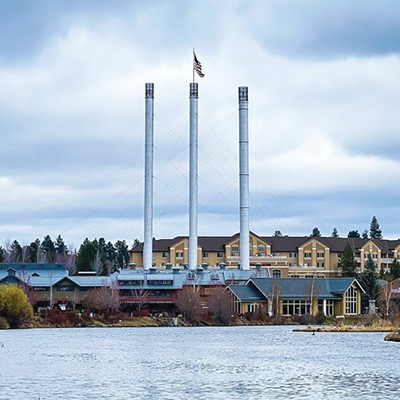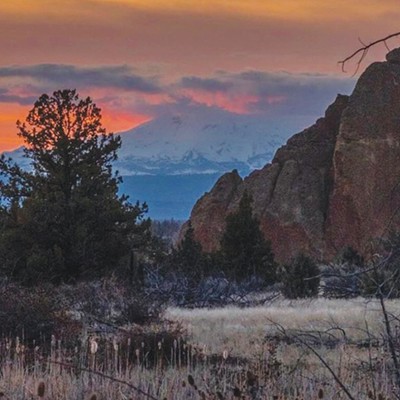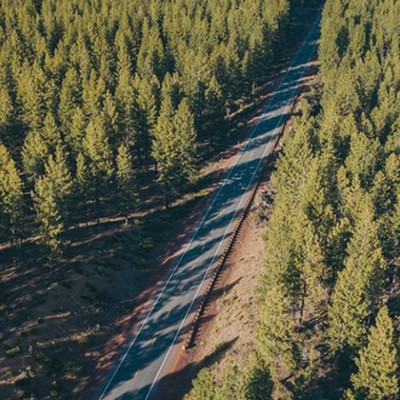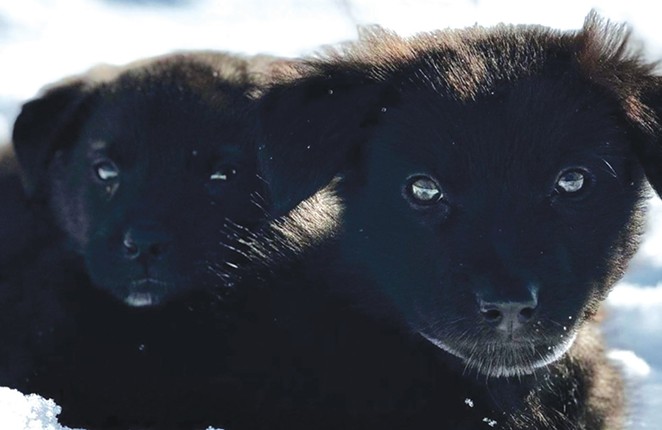
Let's Protect Owyhee Canyonlands as a National Monument
Thank you Source Weekly for your recent editorial, "After His Bluster About the Owyhee, Rep. Bentz Should Probably Talk to his Compatriots in the Senate More Often." I applaud U.S. Sens. Ron Wyden and Jeff Merkley working with many local ranchers and environmentalists to create Malheur County Empowerment for the Owyhee Act, introduced last June – Senate Bill 1890 – to protect the Owyhee Canyonlands.
Congressman Cliff Bentz's efforts to block Owyhee Canyonlands compromise deeply disappointed me. Like the Weekly Source wrote, Sens. Wyden and Merkley "worked with a vast group of ranchers, hunters and environmental groups, including the Oregon Natural Desert Association, to establish a compromise for protection, and also use, of the area."
For 25 years, I was a seasonal park ranger at Crater Lake National Park, America's deepest lake. It is one of the cleanest and clearest bodies of water in the world. Thank goodness it is a protected natural area since it became a national park in 1902. Like Crater Lake, Owyhee is another sacred place in Oregon that deserves wilderness protection. It is a place that should be protected and available to use for all of us.
Owyhee Canyonlands supports a rich diversity of species and habitats, contains cultural resources significant for many communities, and offers exceptional recreational opportunities. It is the largest conservation opportunity in the American West. It is a place that all Oregonians would want to protect as a national monument.
—Brian Ettling
Drones and Civil Society
I never expected to write a letter about drones, and certainly not about the penalties that a hypothetical person might face if they, in a fit of passion, took action to down the drone from the sky. Well, don't do it! Sure, you can think about it (so far), but do not, I repeat DO NOT, take action. As it turns out, drones are protected by federal law. Yes, the feds can track you down and make your life miserable.
This letter is intended as a helpful heads up. Imagine a hypothetical person peacefully paddling the Deschutes River along a reach of this nationally designated Wild and Scenic River where this person had paddled for years. At one particularly peaceful point, while blissing out in a tranquil scene of changing aspens, a noisy drone appears and buzzes around like some gargantuan mosquito, perhaps capturing photos of the same scene I... I mean the hypothetical person... was enjoying. It is easy to imagine some person in a lounge chair, or some big SUV, joyfully managing the drone joy stick to get that perfect shot. Good on ya! Yay technology! Hope you had your headphones on, listening to something amazing on Spotify.
In the future, please know that the hypothetical person will be glaring at your device, hopeful for some respite, and maybe changes to laws that enable such intrusions. Meanwhile, also know they are really hopeful that some random, very large and resilient raptor will take that drone right out the sky!
—Kevin Tanski
Perplexed: Unoccupied beds at Bethlehem Inn in Redmond RE: Letters, 11/16
It can seem like the "unhoused don't want to make change and be accountable." "Unhoused" is a generalization; some don't want services while others do (just like the housed population). Whether it's emergency shelter, transitional-to-permanent housing or low and high-barrier options, housing represents only one element amid a vast intersection of other issues, like addictions and poverty.
Addiction behaviors attempt to medicate symptoms of personal, collective and intergenerational trauma. Trauma researchers and experts* understand trauma as physiological dysregulation of the autonomic nervous system. This system drives an astonishing array of non-volitional functions, from how well our guts work to the formation of our views of self, others and the world.
Unhoused folks I've spoken with have trauma histories, and often, addictions. Housed or unhoused, in recovery treatment they immediately feel pain and loss that they medicated with substances and/or activities. Add to that obstacles and challenges unhoused folks face that those of us who haven't walked in their shoes cannot fathom.
We're flummoxed and divided about our unhoused community. There's no simple fix for complex living systems (humans, ecosystems, organizations, etc.), wherein every part is exquisitely interconnected and always evolving.
That said, we could transform the conversation by becoming a more trauma-informed community, and by learning to hold accountability alongside compassionate understanding. Imagine how creative, inclusive and innovative our search for solutions could be.
* Five trauma-informed teachers/authors: Stephen Porges, Deb Dana, Peter Levine, Thomas Hubl and Gabor Mate.
— Krayna Castelbaum
Gratitude to the Wampanoag People
I want to express my gratitude to the Wampanoag people for caring for my ancestors who arrived on the Mayflower in 1620. My family wouldn't have survived without their help. According to the General Society of Mayflower Descendants, there may be as many as 10 million living descendants in the United States. Many of us in Central Oregon may owe our existence to the generosity and kindness of the Indigenous people we met when we arrived from other places.
I often think about meaningful ways I can give back to the Wampanoag and other Indigenous First Nations. This year I'm donating to the Native Land Conservancy, a nonprofit land conservation group formed by members of the Wampanoag nation in 2012. This modest circle of people are preserving and restoring the very places that our collective ancestors farmed, gathered, hunted and fished. Supporting their work seems like a loving way to celebrate the Thanksgiving season.
—Lauren Davis
Letter of the Week:
This Thanksgiving, thanks for the helpful information about what looks to be a meaningful application of the term, "Land Back," Lauren.
More locally, readers, consider checking out the Oregon Land Justice Project, part of the Coalition of Oregon Land Trusts, for information about one statewide effort to restore land and indigenous foodways for tribal communities: oregonlandjustice.org/
Come by for your letter of the week, Lauren!
—Nicole Vulcan

